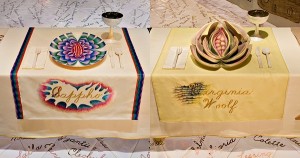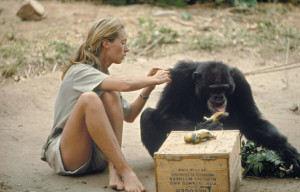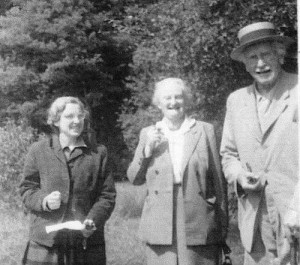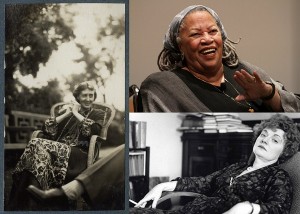As a writer I’m preoccupied by “voice” —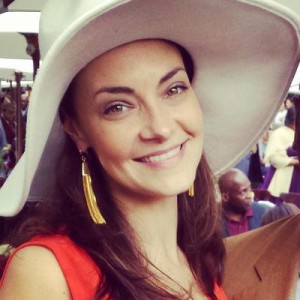 the diction, syntax, and emotional registers of my characters. I hear them before I know who they are and what stories they want to tell me. Immediately upon hearing the audio recording of The Conditions of Love, I became smitten with the voice of Tara Ochs, who so effortlessly modulated her reading to give different expression to each character. And she did this for sixteen hours!
the diction, syntax, and emotional registers of my characters. I hear them before I know who they are and what stories they want to tell me. Immediately upon hearing the audio recording of The Conditions of Love, I became smitten with the voice of Tara Ochs, who so effortlessly modulated her reading to give different expression to each character. And she did this for sixteen hours!
Then last month something magical happened. As the credits rolled at the end of the movie Selma, the name Tara Ochs popped out from the screen. I had been watching “the voice of TCOL” play Viola Liuzzo, the white Civil Rights activist who was murdered by the Ku Klux Klan!
Thus began a correspondence with Tara that has evolved into many exchanges which I’d like to share with you. I’ve often wondered how an actor goes about embodying a character and developing a “voice.” Finally, I had someone I could ask. And you’ll get to meet her because she videotaped two of her answers.

How did it happen that you became the voice of the audiobook for The Conditions of Love?
For The Conditions of Love, I auditioned with a five-minute sample from the book. I don’t know what happens after that — who chose my sample — but I’m REALLY glad they did.
How does preparing to read an audiobook different from preparing for an acting role?
They are completely different. For me an audiobook is more like singing. I’m choosing the voices for each character as if I were matching a tone. But the tone is something I pull from my personal observations about what a voice communicates about a personality. To prep a book, I use the text to inspire me and I combine that with voices I’m familiar with in my life, and hopefully they are strong enough choices that I can keep them consistent throughout!
Did you find anything especially tricky about reading The Conditions of Love?
It’s always challenging when a character ages, because you want them always to sound real and honest, but also to incorporate that changing register while keeping it believably the same person.
I really love how you gave Eunice, my narrator, a strong, sassy and resilient voice. How did you decide how she’d sound?
 Usually the main character, especially if she is the narrator, is a voice as close to my own as possible. That way I can maximize my range, be the most honest I can in different emotional situations and not wear out my voice! Beyond that, I simply try to adjust my attitude based on the character’s perspective. In this case, Eunice had an unusual set of influences growing up, but she is such a strong and aware woman as a result — that is what I wanted to deliver. Essentially who I would be if all that had happened to me.
Usually the main character, especially if she is the narrator, is a voice as close to my own as possible. That way I can maximize my range, be the most honest I can in different emotional situations and not wear out my voice! Beyond that, I simply try to adjust my attitude based on the character’s perspective. In this case, Eunice had an unusual set of influences growing up, but she is such a strong and aware woman as a result — that is what I wanted to deliver. Essentially who I would be if all that had happened to me.
The audiobook of The Conditions of Love runs more than sixteen hours. I’m sure the recording took even longer. How many days does it take to record a book of this length? How can you sustain the same voice over that span of time?
I average about two hours of work for every one hour of recorded material. That includes my “brain breaks,” maybe a short lunch, a moment to take a phone call or use the restroom. I narrate about six hours a day, and that gets broken up by my other work — acting jobs, auditions, etc. I have to be very careful about how I use my voice during the time I am recording. I tend to avoid smoky areas and alcohol and get lots of rest. It’s not hard to blow out your voice when it’s being worked so constantly so I usually spend those days not talking to others very much!
I love how you do Mr. Tabachnick’s voice in your reading. Do you enjoy doing accents? Do you specialize in any one in particular?
 Ha! Yes, I LOVE anything related to the Russian accent — Jewish, German, all those accents are in my wheelhouse. I love doing accents because the musicality is so universal to our untrained ears. I tend to have a decent ear for accents, but sometimes I have to do a little extra work to make sure I’m not drifting towards a different country!
Ha! Yes, I LOVE anything related to the Russian accent — Jewish, German, all those accents are in my wheelhouse. I love doing accents because the musicality is so universal to our untrained ears. I tend to have a decent ear for accents, but sometimes I have to do a little extra work to make sure I’m not drifting towards a different country!
Is there anything you especially liked about your reading of The Conditions of Love?
I think I may have liked finding Mern the best. Something about her voice spoke to me of how Eunice remembered her more than she may actually have sounded. I liked that idea. . . .That she became larger than life in retrospect.
You’re currently getting a lot of well-deserved attention for your role in the movie Selma playing Viola Liuzzo, the wife and mother of five children who left her family in Detroit, Michigan to join Martin Luther King in March, 1965 in registering black voters in Alabama and marching for Civil Rights. Shortly after arriving, Viola was murdered by the Ku Klux Klan. How did you get this amazing role?
As a fiction writer, I hear the voices of my characters, but they are imaginary people and I’m free to make them sound as I like. When you’re preparing for a role playing an historic person, do you try to sound like that person and replicate their tone and pitch? Or do you try to convey more of the emotional truth of that individual through his or her voice?
We had a dialect coach on set (Elisa Carlson) to help us properly match the voices that were recognizable, and to have the correct accents for anyone else. But there isn’t any audio recording of Viola, and sources say she had a southern accent from childhood, but that it was likely that was mostly fading from her time living in Detroit. And of course, I had very few lines anyway, so I simply stuck with my own voice and accent, as that would be the most believable. Beyond that, I prefer to approach a vocal choice from an internal place first.
Other than affecting an accent, most of the work needs to be grounded in my own voice or it’s an impression. Which I also enjoy doing, but it disconnects you from the emotion then.
In your blog you describe visiting Viola’s grave during the filming of Selma. How has playing Viola changed your life?
I really love your “Lucky Star” blog posts about Selma. Do you enjoy writing?
I really do love to write, when I have something to say. I’ve always had a mind for being a writer of some sort. I even took postgrad courses at UCLA in journalism, but the truth is I don’t have the day-to-day work ethic. I only write when inspired, and as I’m sure you know that means about three times a year.
What’s next for Tara Ochs?
The MILLION dollar question. I don’t necessarily see my career taking a radical course change because of Selma. But I AM going to be working more with Viola Liuzzo’s story and her family. That’s one story I hope to always be sharing.

